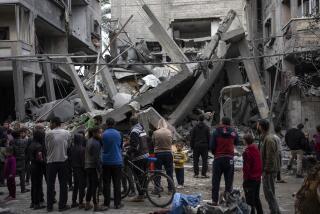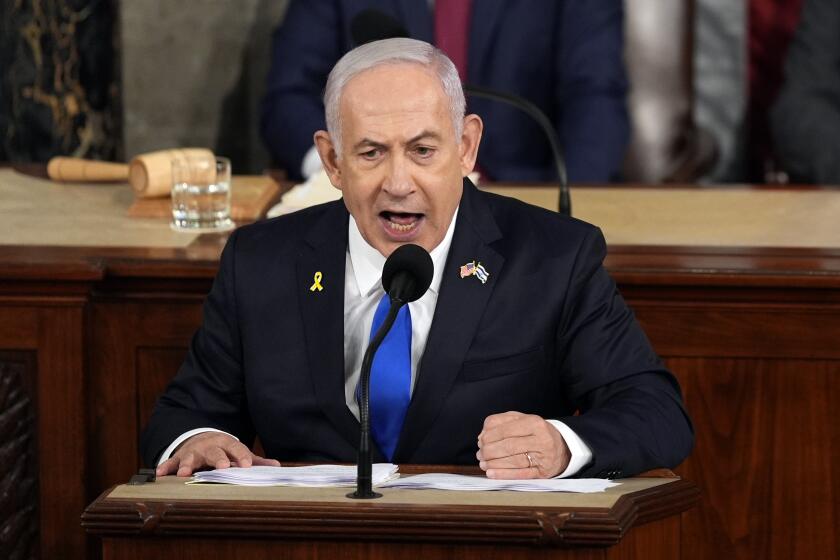Saving lives in Syria
A day after representatives of 83 nations promised “additional appropriate measures” to shore up the Syrian opposition, a special United Nations envoy said Monday that the Bashar Assad regime will withdraw troops from populated areas by April 10, with a mutual cease-fire to begin within 48 hours. To put it mildly, skepticism is in order. Assad has reneged on similar commitments in the past, and Russia, one of his two supporters on the U.N. Security Council, shows no signs of abandoning its ally. On Monday the Russian foreign minister criticized “ultimatums and artificial deadlines” for ending the violence, which has cost 9,000 lives so far.
That said, there is reason for Assad to comply with the six-point peace plan proposed by former U.N. Secretary-General Kofi Annan. Unlike an earlier Arab League proposal and a Security Council resolution unsuccessfully pressed by the West, the Annan plan does not call for Assad to step down, though it does commit him to an “inclusive Syrian-led political process.” The plan also calls for release of detainees, access for journalists, respect for freedom of association and the right to demonstrate peacefully.
If both the regime and the opposition forces agreed to a cease-fire, there is no guarantee that Assad wouldn’t stall on implementation of the political components of the plan. But countless lives might be saved. The “Friends of Syria” that met over the weekend in Istanbul rightly made their priority an end to the “atrocities committed by the regime,” even as they called for “a Syrian-led political transition leading to a civil, democratic, pluralistic, independent and free state.” The Western and Arab nations that have pushed for political change in Syria can continue to pursue that objective, but the urgent imperative is an end to the killing.
If Assad again breaks his word, the “Friends of Syria” will “continue to work on additional appropriate measures with a view to the protection of the Syrian people.” Some assistance is already in the works. Arab nations, for instance, will pay resistance fighters and perhaps provide arms. The United States will provide satellite communications equipment that, in the words of Secretary of State Hillary Rodham Clinton, “will help activists organize, evade attacks by the regime and connect to the outside world.” More generally, Clinton warned that there would be “serious consequences” if violence by the regime continued.
If by serious consequences, she means progressively punitive sanctions and continued diplomatic isolation, her warning is appropriate. But the U.S. should not threaten, let alone carry out, military intervention in Syria, nor should it aid Syrian rebels. We worry that the provision even of satellite technology might be the first step down that path. This country can be a friend to Syria without taking up — or providing — arms. The United States has learned in recent years that military intervention can have unforeseen and undesirable consequences.
More to Read
A cure for the common opinion
Get thought-provoking perspectives with our weekly newsletter.
You may occasionally receive promotional content from the Los Angeles Times.






